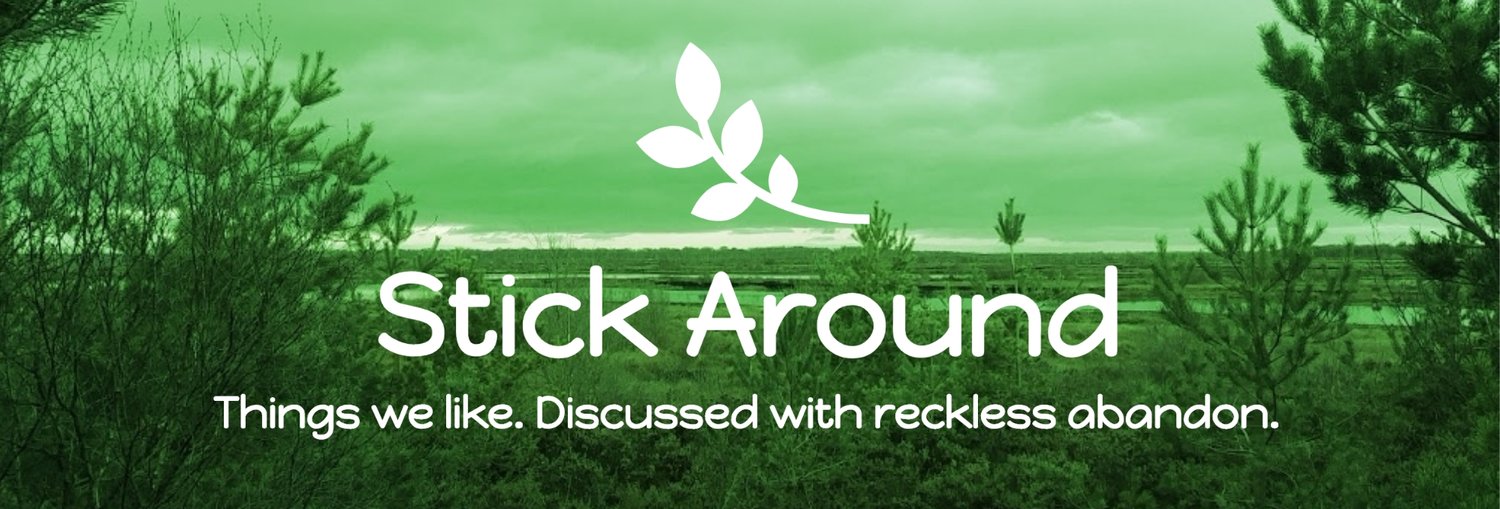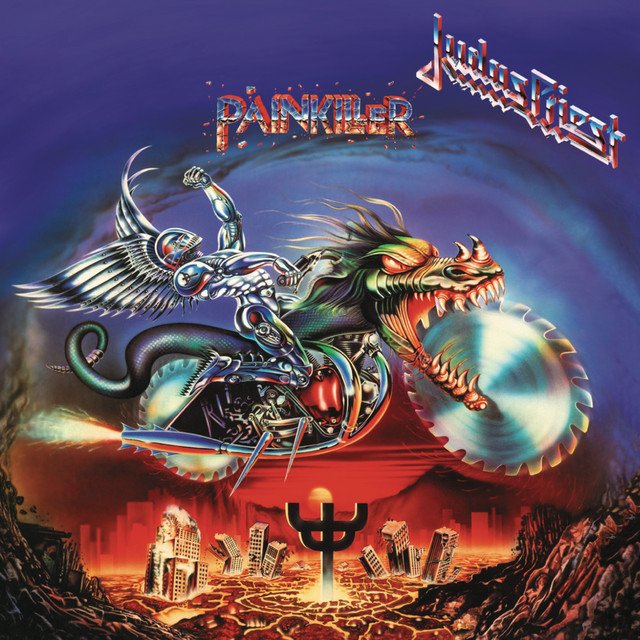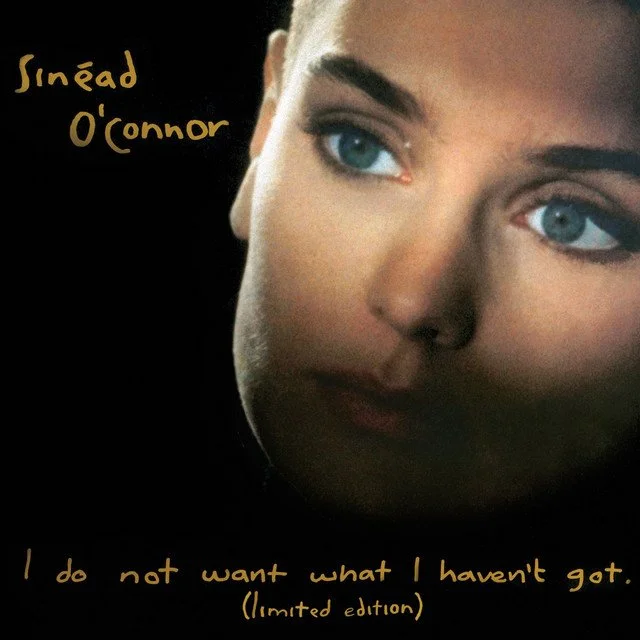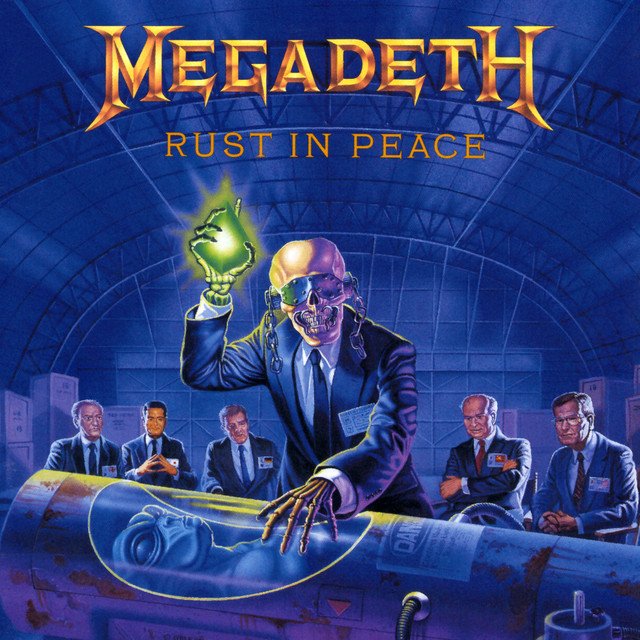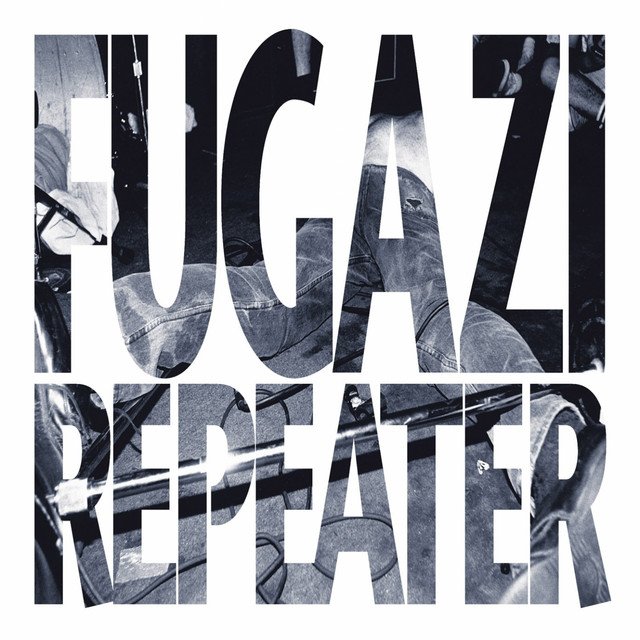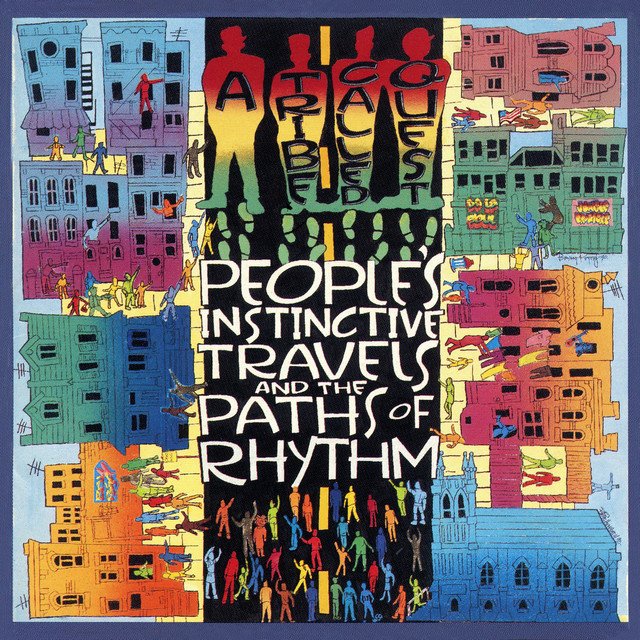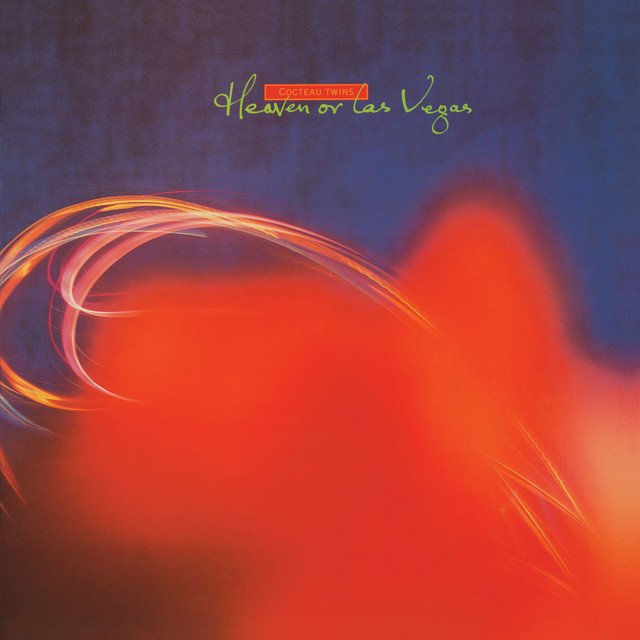1990 - Clive's Top Albums of Every Year Challenge
Over what will likely be the next few years I’m going to be ranking and reviewing the top 5 albums - plus a fair few extras - according to users on rateyourmusic.com (think IMDB for music) from every year from 1960 to the present. If you want to know more, I wrote an introduction to the ‘challenge’ here. You can also read all the other entries I’ve written so far by heading to the lovely index page here.
And so here we enter the second half of this fun, but rather time consuming, challenge nearly 3 years after I first started it. So what happened in 1990? Well, Nelson Mandela was freed after 27 and a half years, Margaret Thatcher resigned as Prime Minister, East and West Germany were re-united and The Simpsons debuted on Fox.
On the musical front, here’s what rateyourmusic.com’s loveley members rate as their top 5 albums of the year:
#1 Cocteau Twins - Heaven or Las Vegas
#2 Depeche Mode - Violator
#3 Megadeth - Rust in Peace
#4 Judas Priest - Painkiller
#5 Fugazi- Repeater
I’m also grabbing this lot from further down the rankings:
#6 Slayer- Seasons in the Abyss
#8 Nick Cave & The Bad Seeds - The Good Son
#11 Public Enemy - Fear of a Black Planet
#12 Sonic Youth - Goo
#15 A Tribe Called Quest - People's Instinctive Travels and the Paths of Rhythm
And, the below from a couple of all-time lists by female artists:
Mitsuko Uchida - 12 Études
Sinead O’Conor - I Do Not Want What I Haven’t Got
12. Painkiller
Judas Priest
“Painkiller is the twelfth studio album by English heavy metal band Judas Priest, released in September 1990. It was the last Judas Priest album to feature long-time lead singer Rob Halford until his return for the 2005 album Angel of Retribution and the first to feature drummer Scott Travis.” - Wikipedia
This album is as mad as its cover - I mean just look at the thing. If you can embrace that madness, and get beyond those stereotypical wailing hard-rock vocals and the lyrics about metal meltdowns and leather rebels, then you’ll have a good time. It’s K.K Downing and Glenn Tipton’s technical guitar work and dual soloing that makes the album what it is for me, which is a frenetic and unbridled roar through a burning post-apocalyptic cityscape on the back of a Harley Davidson with saw blades for wheels… you get the picture.
Song Picks: Pain Killer, Night Crawler
7/10
11. Violator
Depeche Mode
“Violator is the seventh studio album by English electronic music band Depeche Mode. Preceded by the singles "Personal Jesus" and "Enjoy the Silence" (a top-10 entry in both the United Kingdom and the United States), the album propelled the band into international stardom.” - Wikipedia
Violator sounds sumptuous, I mean just listen to those lovely midi drums. Dave Gahan’s baritone vocals create a generally sombre atmosphere, but unlike many baritone vocals they can still carry a lovely tune (see Sweetest Perfection). You can hear a whole heap of today’s artists in their music, particularly today’s darker pop.
It’s rare that an album that is so heavily electronic from over 30 years ago sounds like it could have come out today, but Violator truly does. There’s a slight glumness to the record which hasn’t made it one that I’ve been dying to come back to regularly, but there’s no doubt about it’s influence and artistry. Oh, and did I mention it sounds bloody perfect.
Song Picks: World in My Eyes, Personal Jesus, Enjoy the Silence
8/10
10. Fear of a Black Planet
Public Enemy
“Fear of a Black Planet is the third studio album by American hip hop group Public Enemy. It was released on April 10, 1990, by Def Jam Recordings and Columbia Records, and produced by the group's production team The Bomb Squad, who expanded on the sample-layered sound of Public Enemy's 1988 album It Takes a Nation of Millions to Hold Us Back.” - Wikipedia
Public Enemy are back with another all-anger, all-dancing hip-hop classic. This one doesn’t quite have the consistent energy or the great samples that made their previous album so fantastic, but that’s asking it to jump over an unfairly high-bar, and this still packs its hour run-time with cracking hip-hop beats and political anger.
Song Picks: Brothers Gonna Work it Out, Welcome to the Terrordome, Burn Hollywood Burn, Who Stole the Soul
8/10
9. 12 Etudes
Mitsuko Uchida
“Dame Mitsuko Uchida, born 20 December 1948) is a Japanese-British classical pianist and conductor, born in Japan and naturalised in Britain, particularly noted for her interpretations of Mozart and Schubert. Claude Debussy's Études (L 136) are a set of 12 piano études composed in 1915. Debussy described them as ‘a warning to pianists not to take up the musical profession unless they have remarkable hands’. They are broadly considered his late masterpieces.” - Wikipedia
I can’t find all that much information about this recording in particular, but Uchida’s performance of Debussy’s 12 Etudes is bewitching. I guess the thing that came through most for me was that although there is considerable skill and precision on display here, the pieces never stray into feeling at all machine-like, the pieces are filled with the complexity of humanity. 12 Etudes is yet another testament to the power of the piano as an instrument with such range that it can convey the power of a whole orchestra, or the delicate quietness of a single plucked string.
8.5/10
8. I Do Not Want What I Haven’t Got
Sinead O’Connor
“I Do Not Want What I Haven't Got is the second album by Irish singer Sinéad O'Connor, released in March 1990 on Ensign/Chrysalis Records. It contains O'Connor's version of the Prince song Nothing Compares 2 U, which was released as a single and reached number one in multiple countries. The album was nominated for four Grammy Awards in 1991, including Record of the Year, Best Female Pop Vocal Performance, and Best Music Video, Short Form for Nothing Compares 2 U, winning the award for Best Alternative Music Performance. However, O'Connor refused to accept the nominations and award.” - Wikipedia
Nothing Compares 2 U was one of the best selling singles of the decade, and a rare occasion where a cover is so massively more well known than the original. Of course nothing I say about O’Connor’s stupendous vocal performance on that song will be new, so I won’t say anything other than it is surely one of the most emotionally charged vocal performances of all time. It’s a break-up song, but apparently O’Connor was more channeling the death of her dad 5 years earlier. The most remarkable thing though is that the rest of the album, though never quite eclipsing the uneclipsable, does more than hold a candle to it, and feels less like a necessary home for it and more like a record where a lot of the other tracks deserve more attention than they got. Sinead goes political, personal, experimental and even uses sample drum beats. She does it all with the confidence of someone who would go on reject all the nominations and Grammy awards the album was nominated and awarded for, and proves once again that she is the voice of heartbreak.
Song Picks: Nothing Compares 2 U, Black Boys on Mopeds, I am Stretched on Your Grave
8.5/10
7. Rust in Peace
Megadeth
“Rust in Peace is the fourth studio album by American thrash metal band Megadeth, released on September 24, 1990, by Capitol Records. It was the first Megadeth album to feature lead guitarist Marty Friedman and drummer Nick Menza. Since its release, Rust in Peace has often been named as one of the best thrash metal records of all time, by publications such as Decibel and Kerrang!, and listed in the reference book 1001 Albums You Must Hear Before You Die.” - Wikipedia
I’ve very much enjoyed the plethora of thrash-metal albums coming through in the last few years of this challenge, and this is one of my favourites. The album is very much carried by Dave Mustaine’s guitar riffs, and the late Nick Menza’s (he tragically collapsed and died while drumming at a concert in 2016) great punctuation of them on drums. It’s an album that’s technical prowess keeps your brain firing, and keeps things engaging from start to finish. The songs are generally about politics, religion, warfare (the title refers to leaving nuclear weapons to ‘rust in peace’) or Mustaine’s personal battles and have a straightforward punk style to them, which suit Mustaine’s vocals well.
Song Picks: Holy Wars… The Punishment Due, Tornado of Souls, Five Magiks, Dawn Patrol
8.5
6. Seasons in the Abyss
Slayer
“Seasons in the Abyss is the fifth studio album by American thrash metal band Slayer, released on October 9, 1990, through Def American Records. Recording sessions began in March 1990 at Hit City West and Hollywood Sound, and ended in June 1990 at The Record Plant in Los Angeles, California. It was the band's last album to feature their full original lineup with drummer Dave Lombardo until his return on the band's 2006 album Christ Illusion.” - Wikipedia
Nothing hugely new when compared to their previous albums South of Heaven and Reign in Blood, but I loved both of those and I love this too. The riffs cascade at breakneck speed, the drums persistently rumble, and Araya’s vocals growl. No one thrashes quite like Slayer.
Song Picks: Blood Red, Skeletons of Odyssey
8.5/10
5. Goo
Sonic Youth
“Goo is the sixth full-length studio album by American alternative rock band Sonic Youth, released on June 26, 1990 by DGC Records. For this album, the band sought to expand upon its trademark alternating guitar arrangements and the layered sound of their previous album Daydream Nation (1988) with songwriting on that was more topical than past works, exploring themes of female empowerment and pop culture.” - Wikipedia
Sonic Youth’s first album on a major label proves you can ‘sell out’ and still be cool. They’re sound is perhaps a little more accessible here, but it’s still dissonant, punk and intensely alternative. The early 90s was very much when ‘alternative’ (I won’t go into the oddness of that genre name) became sellable, and that was in no small part thanks to Sonic Youth and their success with Goo. Musically, it’s the same guitar barrage you’d expect, but with a little more of Kim Gordon’s influence with two of the album’s best songs written by her, Kool Thing and Tunic (Song for Karen). The latter is about the death of Karen Carpenter of the Carpenters, who died of anorexia. It’s one of Sonic Youth’s most touching songs, packed with lyrics that cut to the core like the verse line.
I feel like I'm disappearing, getting smaller every day
But when I open my mouth to sing, I'm bigger in every way
It brings about sadness not via the usual minor chords and melody, but via Sonic Youth’s typical dissonant guitar chugs, and Kim Gordon’s hollow vocal, which sounds like it could be coming from the afterlife itself.
Goo is another triumphantly punk album, both in sensibility and sound, and that cover is surely one of the hippest of all time.
Song Picks: Tunic (Song for Karen), Kool Thing
9/10
4. Repeater
Fugazi
“Repeater is the full-length debut studio album by the American post-hardcore band Fugazi. It was released on April 19, 1990. Repeater is often regarded as a definitive album for the band and a landmark of rock music.” - Wikipedia
Ian McKaye (previously of Minor Threat) didn’t fit in with a lot of the punk scene with his straight-edgedness, and Repeater distances himself from that scene yet further. The anger is still there, but it’s packaged in a band keen to be cerebral as well as visceral. Riffs turning on each other, riffs morphing into other riffs, riffs so huge that they carried the whole of 90s grunge into the mainstream in their wake. Albums like Repeater and Goo didn’t make waves in the mainstream due to them being more accessible, but by making music so creative and sonically powerful that one couldn’t ignore them.
Song Picks: Repeater, Song #1, Two Beats Off
9/10
3. The Good Son
Nick Cave & The Bad Seeds
“After two dark and harrowing albums with Your Funeral... My Trial (1986) and Tender Prey (1988), The Good Son was a substantial departure with a lighter and generally more uplifting sound.” - Wikipedia
The more uplifting sound is attributed to Cave falling in love with a Brazilian journalist, and indeed the Brazilian influence seeps into the opener Foi Na Cruz in obvious ways. The Good Son is a big sounding album, tracks like the Witness Song feature climaxes with backing vocals and a whole host of instruments in what can only be described as a triumphant cacophony, while others like Foi Na Cruz sound more hopeful than triumphant, but sound equally atmospheric. Cave is one of those singers who owns his lyrics in a way that means you have to pay attention to them, a skill not all that present in the musical world, and that works well here where a less interesting vocalist would get lost in the in the gorgeous melodies. The Good Son is a chamber-pop album that leaves an imprint, beautifully textured with harmonies driven by the ethereal melodies throughout, as timeless as Cave’s vocals.
Song Picks: Foi Na Cruz, The Witness Song, Sorrow’s Child
9/10
2. People's Instinctive Travels and the Paths of Rhythm
A Tribe Called Quest
“People's Instinctive Travels and the Paths of Rhythm is the debut studio album by American hip hop group A Tribe Called Quest, released on April 10, 1990 on Jive Records. People's Instinctive Travels and the Paths of Rhythm was met with acclaim from professional music critics and the hip hop community on release, and was eventually certified gold in the United States on January 19, 1996. Its recognition has extended over the years as it is widely regarded as a central album in alternative hip hop with its unconventional production and lyricism.” - Wikipedia
Push it Along and Luck of Lucien open things with what will surely be two of the best grooves of the decade, and we’re only in 1990. There’s a laid back and open jazzy feeling to the beats, which Q-Tip’s equally chilled rapping gives plenty of room to breathe. His lyrics are refreshingly simple and yet jump from topic to topic from couplet to couplet in a way that makes any overall meaning quite opaque. People's Instinctive Travels and the Paths of Rhythm is so relaxed it’s a miracle it exists at all. Q-Tip and Ali Shaheed Muhammad’s beats, production, and vocals create that most marvellous thing; something so perfect in how loose it is that it would have taken two industrious and meticulous individuals to create it.
Song Picks: Push it Along, Luck of Lucien, After Hours, Can I Kick It?, Description of a Fool
9.5
1. Heaven or Las Vegas
Cocteau Twins
“Heaven or Las Vegas is the sixth studio album by Scottish alternative rock band Cocteau Twins, released on 17 September 1990 by 4AD. Heaven or Las Vegas peaked at number seven on the UK Albums Chart and number 99 on the US Billboard 200, becoming the band's most commercially successful release.” - Wikipedia
I have no qualms in calling Heaven or Las Vegas our first masterpiece of the 90s. Its guitars are bathed in ethereal levels of reverb and Fraser’s lyrics are only occasionally understandable, but always emotionally relatable. I think the power of what is an otherworldly vocal performance is best described by bassist Simon Raymonde, as mentioned on the album’s Wikipedia page:
Raymonde recounted that he would record Fraser's vocals alone for days at a time, during which he first "fully appreciated how amazing she was": "She'd come into the control room and say, 'What was that like?' and I'd scrape the tears away and say, 'That was alright, Liz'. She didn't get off on praise. If I said. 'That was fucking amazing', she'd say 'I thought it was shit.' I learnt not to be too effusive, which was difficult because I was so blown away with what I was hearing.
Luckily, I can be as effusive as I damn well please, and Heaven or Las Vegas is one of the most beautiful albums out there. Recorded while Raymonde dealt with his father’s death and Fraser and Guthrie (the latter programmed all the album’s drums) contemplated their new lives as parents, it was clearly a time with a lot of emotions flying round for the band. On the record those emotions seem to rotate like a slow tornado going languidly in and out of focus, given some direction by Fraser’s extraordinary vocals as they make you feel everything there is to feel.
Songpicks: Fotzepolitic, Wolf in the Breast, Frou-Frou Foxes in Midsommer Fires
10
